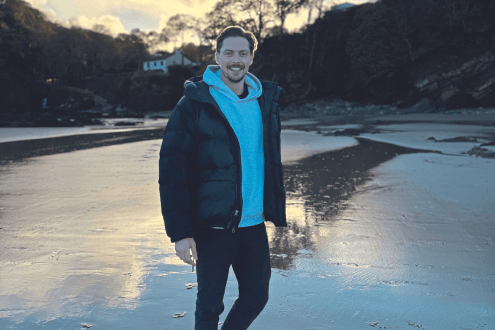How to slow down time
Why do childhood holidays feel like an eternity, yet now the years flash by? Oliver Burkeman clocks the life-time paradox

3 minute read
This is a strange truth that anyone older than 25 will already know: as life goes on, time seems to speed up. Think back to childhood when holidays seemed to last forever and you attended school for what felt like decades. Now consider last year, by contrast, and it probably raced by. As those in their 30s and 40s will know, the effect gets worse with age – and, for people in their 70s, a year can flash by in what seems like days. ‘Where did the time go?’ we wonder. One study found that if you’re 40, assuming you live to be 80, your life, in terms of your subjective experience of time, is already 70 per cent gone. It’s all rather terrifying. Fortunately, though, you have the power to change things.
The best explanation is that memories seem longer when our brains have to process more information. Childhood and young adulthood are full of novelty – the first time you rode a bike, had a romance, got a job – but, as we get older, things get more routine. You can test this out by recalling a recent experience of novelty in your life, such as travel. A few years back, I went skiing for the first time, and that four-day trip still feels ‘long’. But a four-day period in my ordinary life zooms by too quickly for me to notice. One solution, then, is obvious: do lots of new stuff. Travel more, if you can, and to unfamiliar places. Try new hobbies and meet new people – you’ll be taxing your brain, and the result will be a life that feels longer, more expansive and meaningful. But smaller changes work, too: even altering the route you take to the office, reading different kinds of novels or varying where you buy your sandwich at lunchtime will have some impact.
But novelty can only go so far. Besides, a fulfilling life requires routine: you can’t build deep relationships, or rise through the ranks at work if you’re always switching friends or spouses or jobs. That’s why the Buddhist teacher Shinzen Young suggests an additional strategy: learn to meditate. Even a few minutes a day will enhance your concentration, and the better you get at concentrating, the more information your brain will take in during any experience, no matter how mundane.
You’ll be making your whole life a little more novel. You’ll be more present and time will pass less quickly; in effect, you’ll extend your life – without magic pills or groundbreaking medical technology.
Oliver Burkeman is author of ‘The Antidote: Happiness For People Who Can’t Stand Positive Thinking’ (Canongate, £8.99)
Image: Getty








